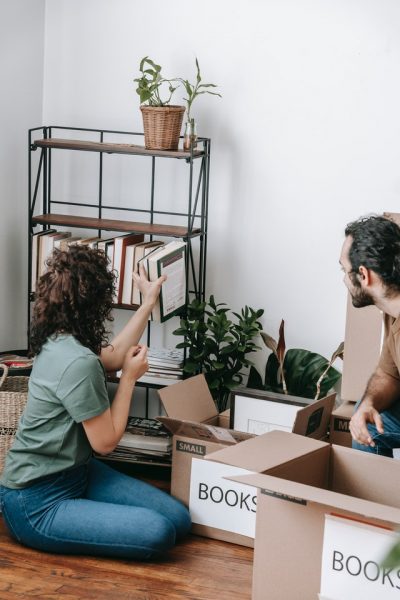
Moving out and living on your own for the first time can be one of the most rewarding experiences you can go through. You’re independent and able to live your life the way you want to, without having to answer to anyone else. That being said, it also comes with a whole host of challenges and responsibilities, and it can be a really hard thing to go through. When you live on your own, there are so many different things to think about, and it can get quite overwhelming. Hopefully, this list will make it a bit easier for you.
Be focused on safety
We all know that living on your own is often less safe than living with someone else. Taking on one person is much easier than taking on an entire household, and if you’re alone, there’s no one who can help you in an emergency. However, there are ways of making sure you’re safe when you live on your own. First of all, make sure that the area you live in is relatively safe, and that the apartment or house you live in has good security. Next, learn how to protect yourself. Take a few self-defense lessons, or invest in a self-defense kit.
Ask for help
When you move out and live on your own for the first time, you’ll very soon realize that, no matter how well you prepared, there are some things you haven’t quite figured out yet. And, sure, it’s not easy to admit that you need help or advice. But there’s no shame in not knowing something! No one has all the answers when they move out. So, if you need to call someone to ask them how to fix a leaky pipe or how to put up a new shower curtain, do it.
Budget
Next up, budget. If you were previously living with your parents, they likely took care of major finances. And if you were living with a roommate, you likely split the bills. Now, however, you’re responsible for your own finances. Sure, you may receive some help from your parents, but it’s important to use your money wisely. Unfortunately, this means having to make some sacrifices. You may need to eat out less or get less takeout. It’s a good idea to set up a budget so that you can clearly see your expenses and income laid out in front of you and implement some budgeting practices.
Start small
In an ideal world, the first place you move into on your own will be your dream house. Unfortunately, that’s not the case. Your first place will likely be small and have more than a few problems. And your appliances may be hand-me-downs, and your furniture may be mismatched. But it’ll be yours, and that’s what matters. Don’t overextend yourself and take on more than you can handle. Trust us, when you do work your way up, it’ll be even sweeter.
Learn to cook
Some people learn to cook while living under their parent’s roof, but many don’t have the need until they move out. If you don’t know how to cook, don’t stress – you’re not alone. That being said, it is an important skill and one you should learn as soon as possible. You don’t need to be whipping up fancy meals each night. When you live on your own for the first time, you’ll likely be focused on making meals that are both cheap and healthy.
Get a pet
Obviously, when you’re living on your own, you’re . . . on your own. You knew that before you moved. But, even though we know we’ll be alone most of the time, we often don’t realize just how lonely it can be to have no one but yourself for company all the time. A good solution might be to get a pet. Pets can greatly help ease loneliness. It doesn’t have to be a huge commitment like a dog or a cat – you can get a more low-maintenance pet like a bird, hamster, or even a fish.
Get into a routine
When you finally experience freedom, it can be tempting to make the most of it. You may want to stay up late and sleep until noon or eat junk all day every day. Give yourself a few days to do just this and experience total freedom. And then it’s time to be responsible and work on a routine. You’ll likely have more to do when you live on your own since you’ll be making your own meals and doing your own laundry, so your routine will need to adjust to your new lifestyle. It may be difficult in the beginning, but it’s important that you stick to it.
Have a check-in buddy
We already mentioned that some of the downsides to living on your own include the fact that no one will be with you in an emergency, and that it can get lonely. That’s why it’s a good idea to have a check-in buddy – someone else who lives on their own, who can check up on you, and you can check up on them. This way, if something happens to either of you, someone will notice, and it’s also a good way to manage the loneliness. Plus, it can be nice to have someone who is going through the same thing as you, so that you can help each other out.
Make lists
Trust us, when you live on your own, lists will be a lifesaver. We’ve already established how many things there are to keep track of when you live on your own. Lists are a great way of staying on top of all of these things, as well as breaking them down so that they’re not so overwhelming. You can keep lists of bills you need to pay, things you need to buy, which tasks you need to do on which day, and anything else you can think of.

